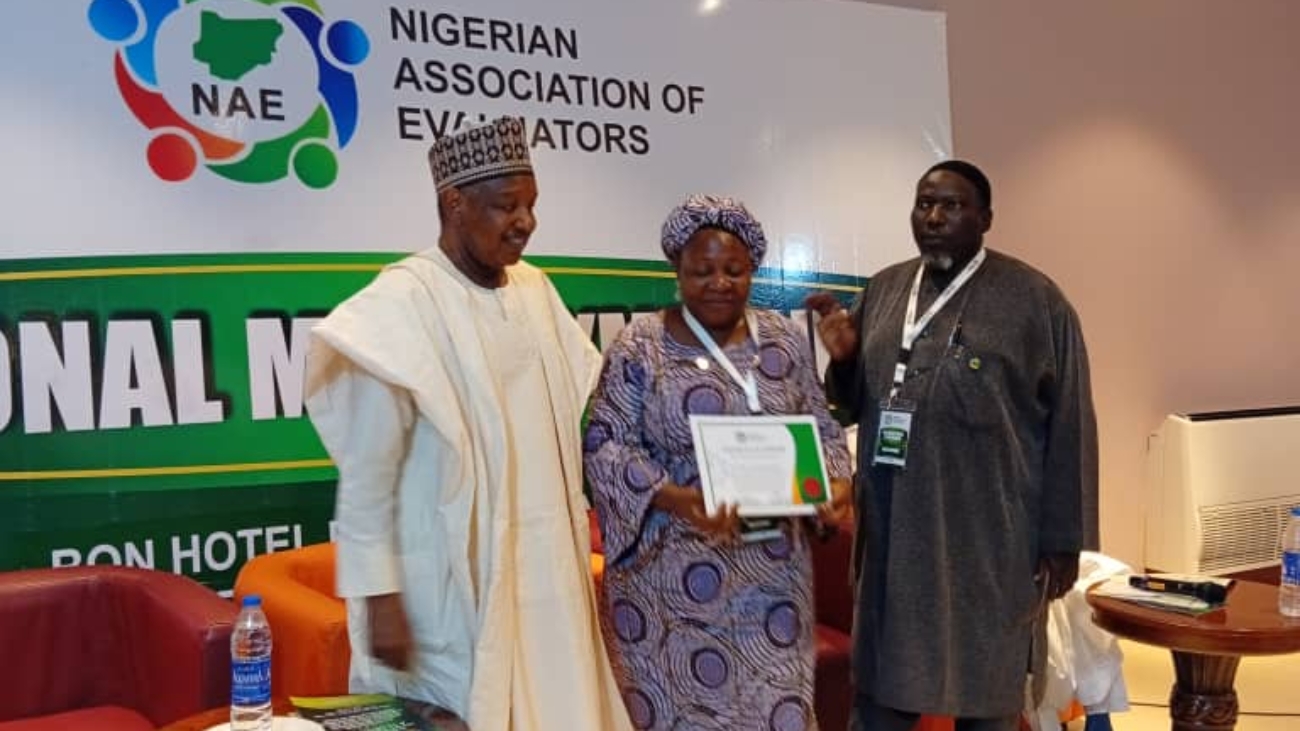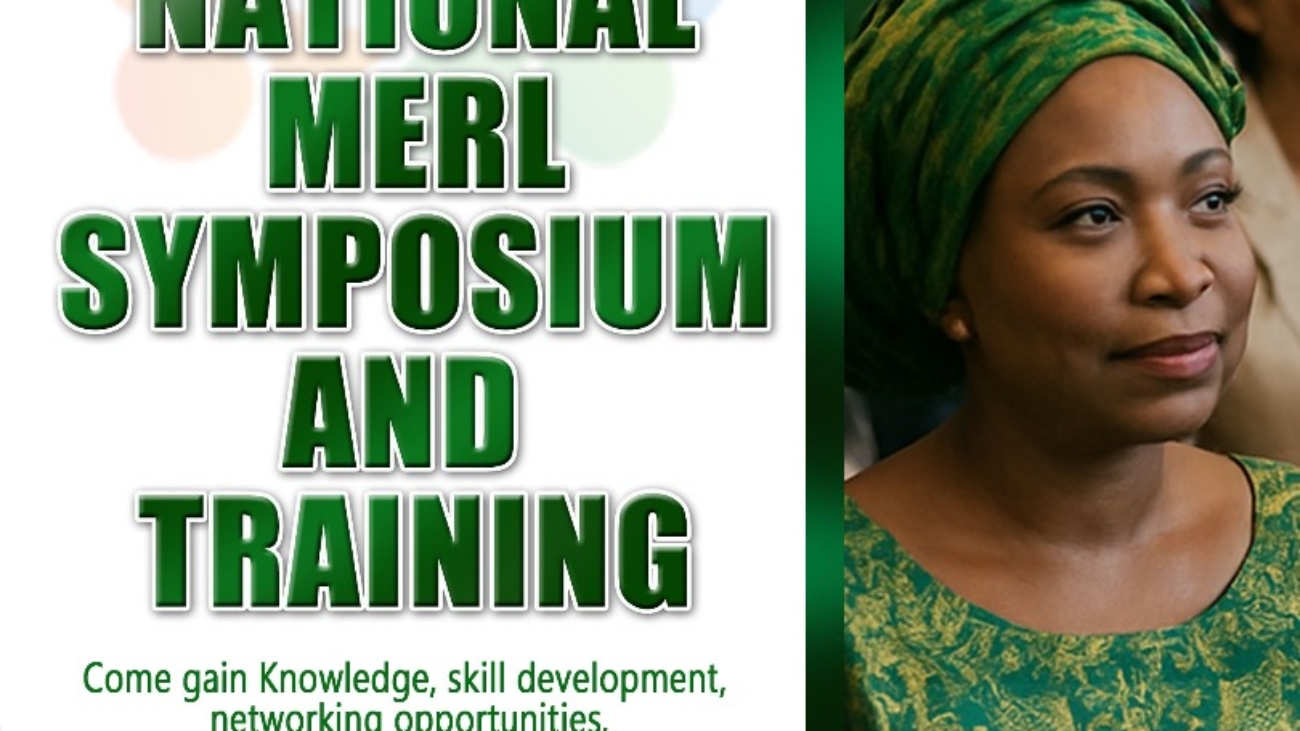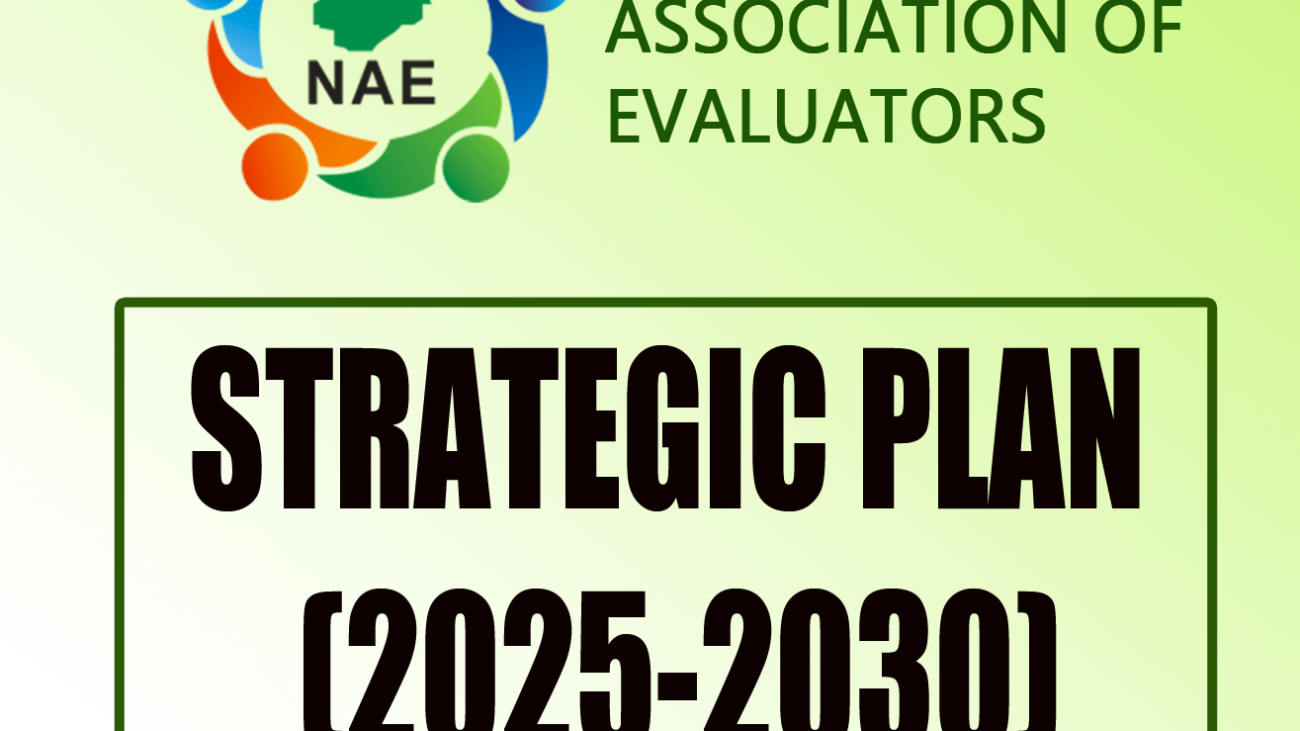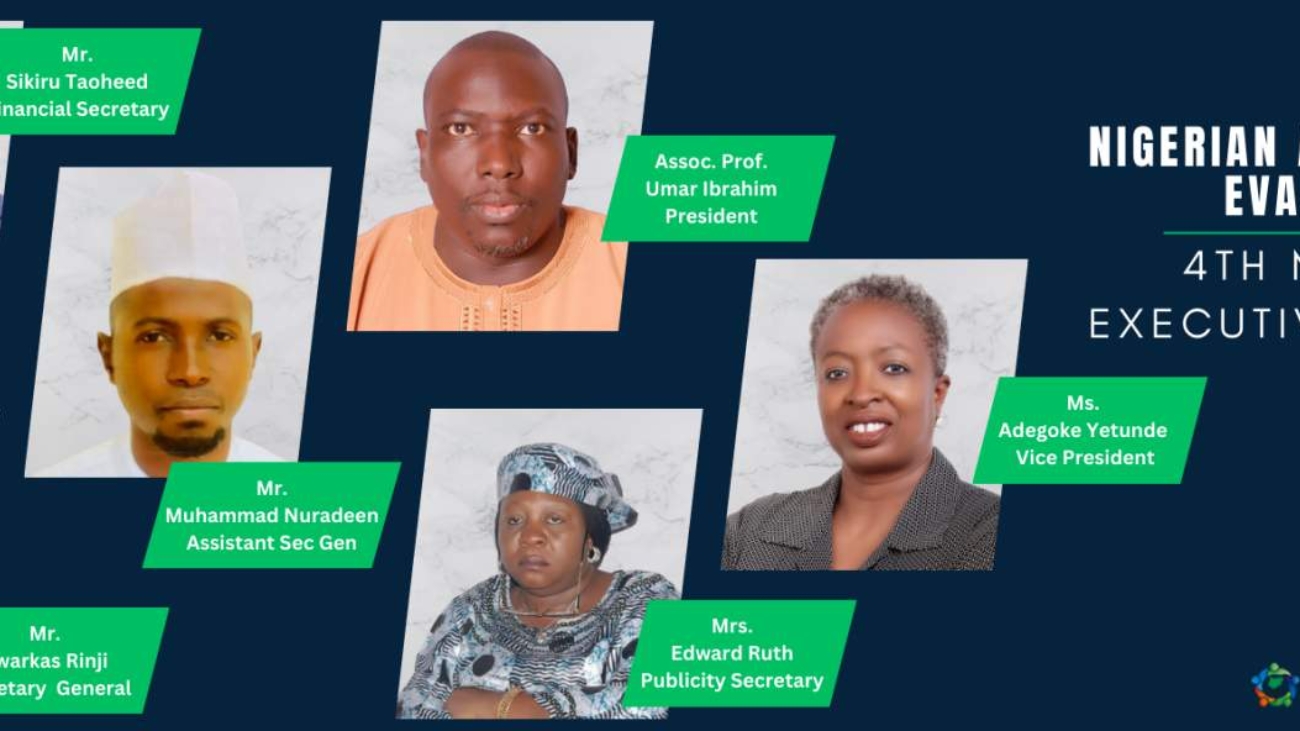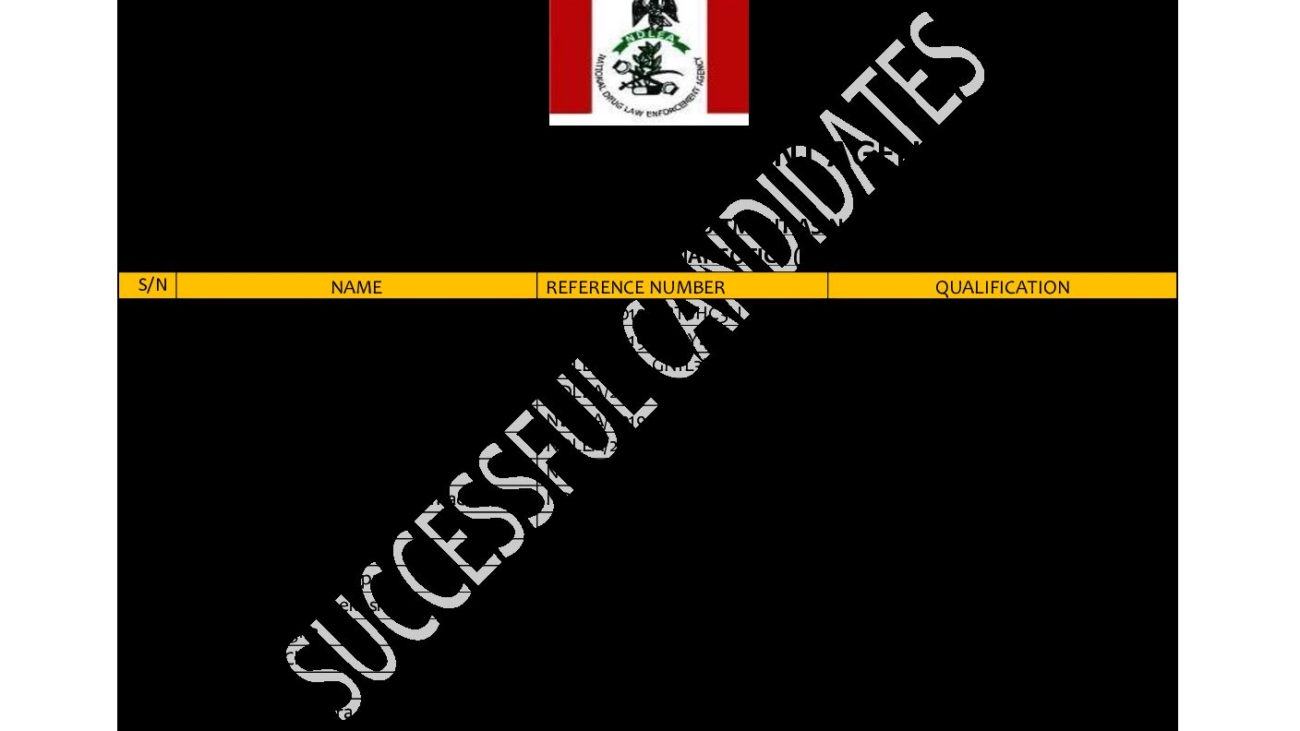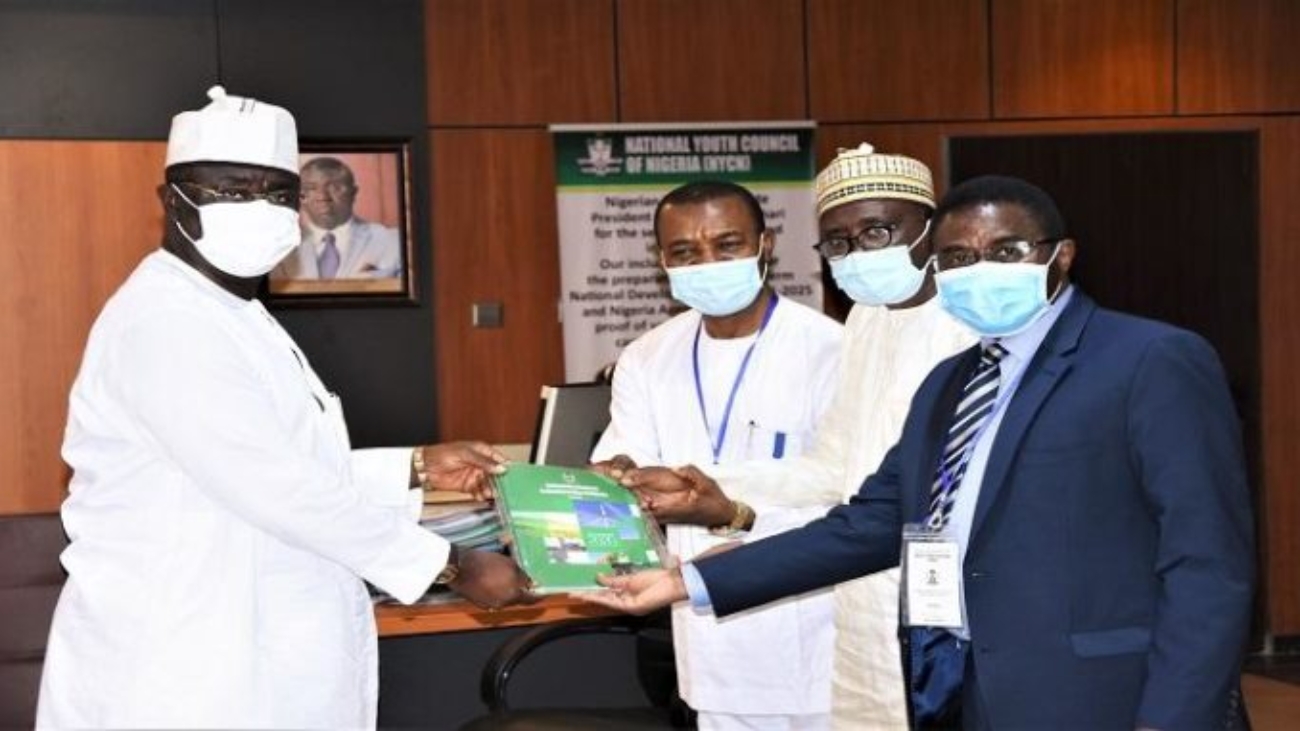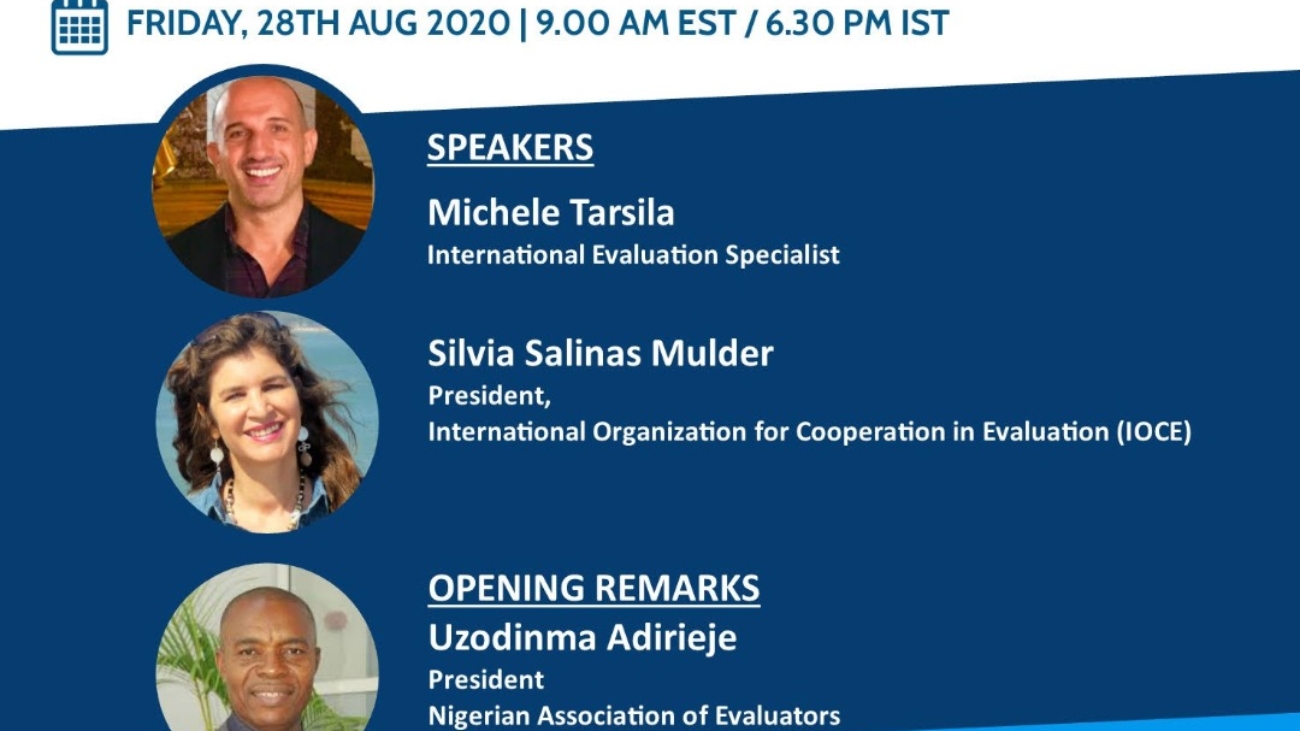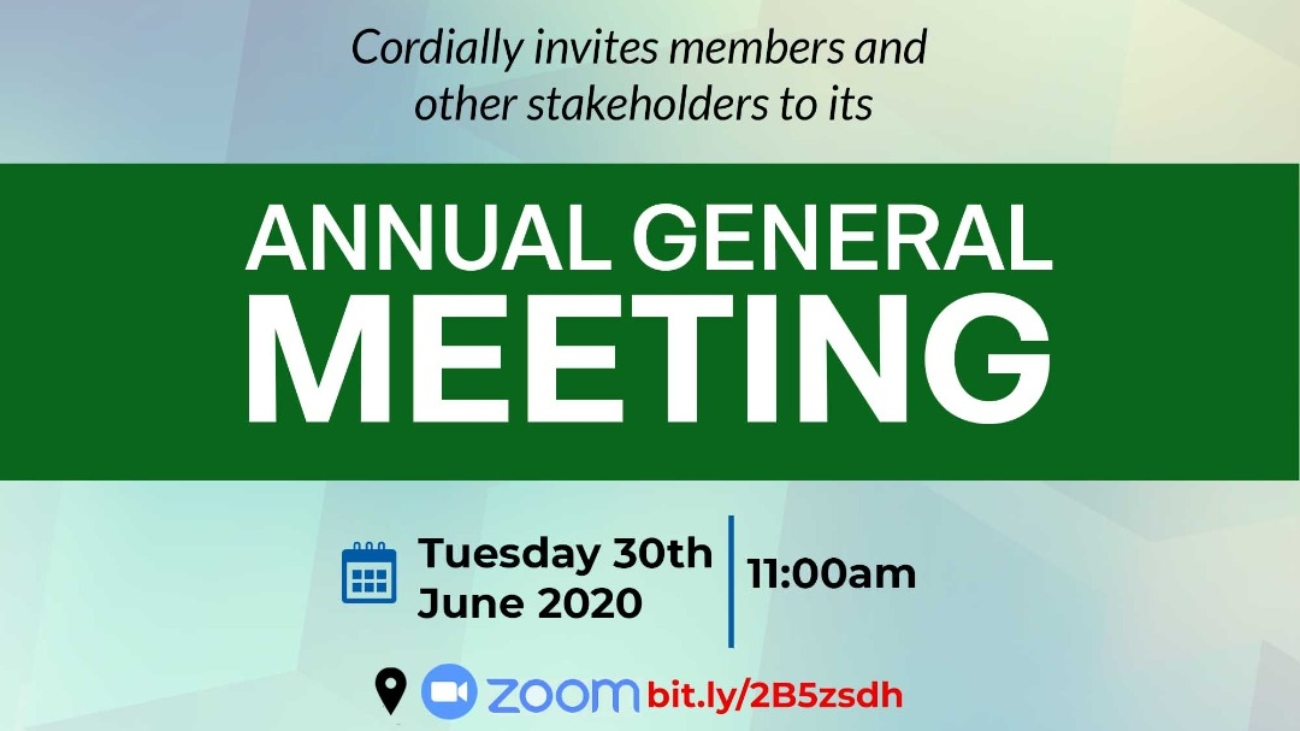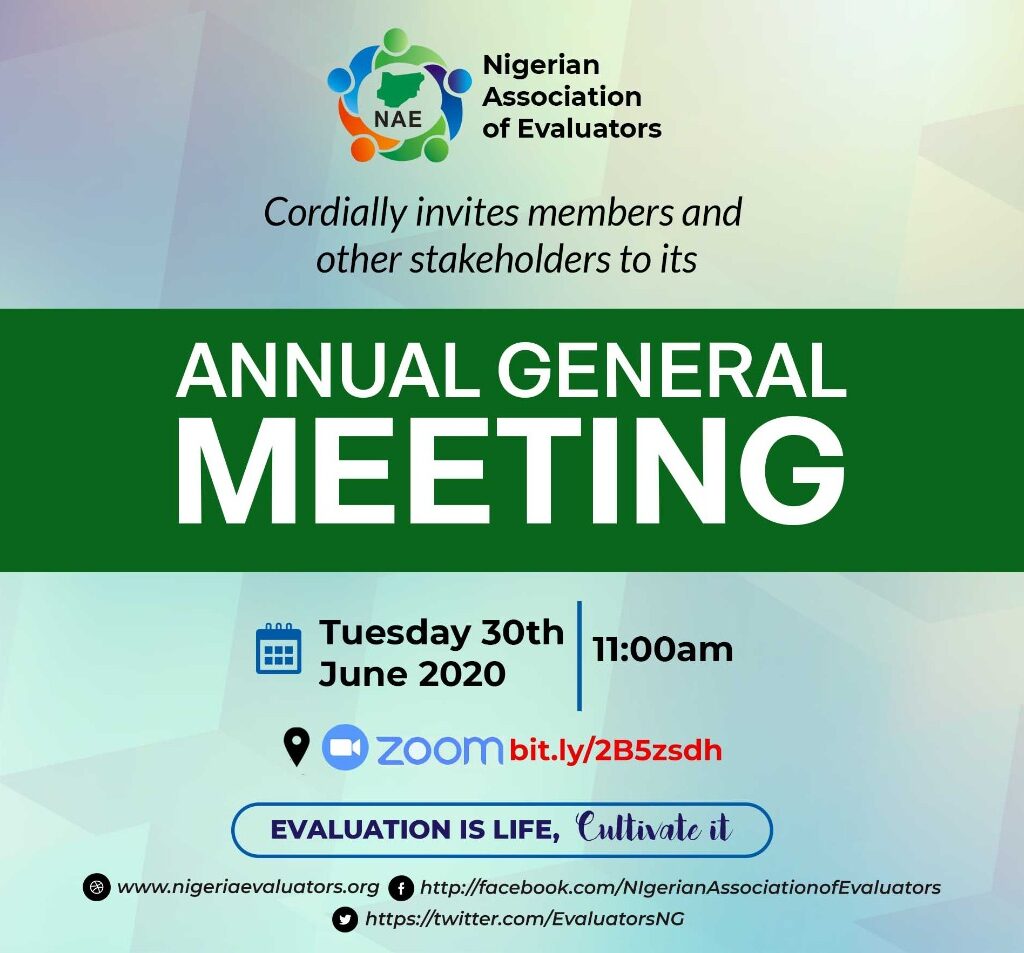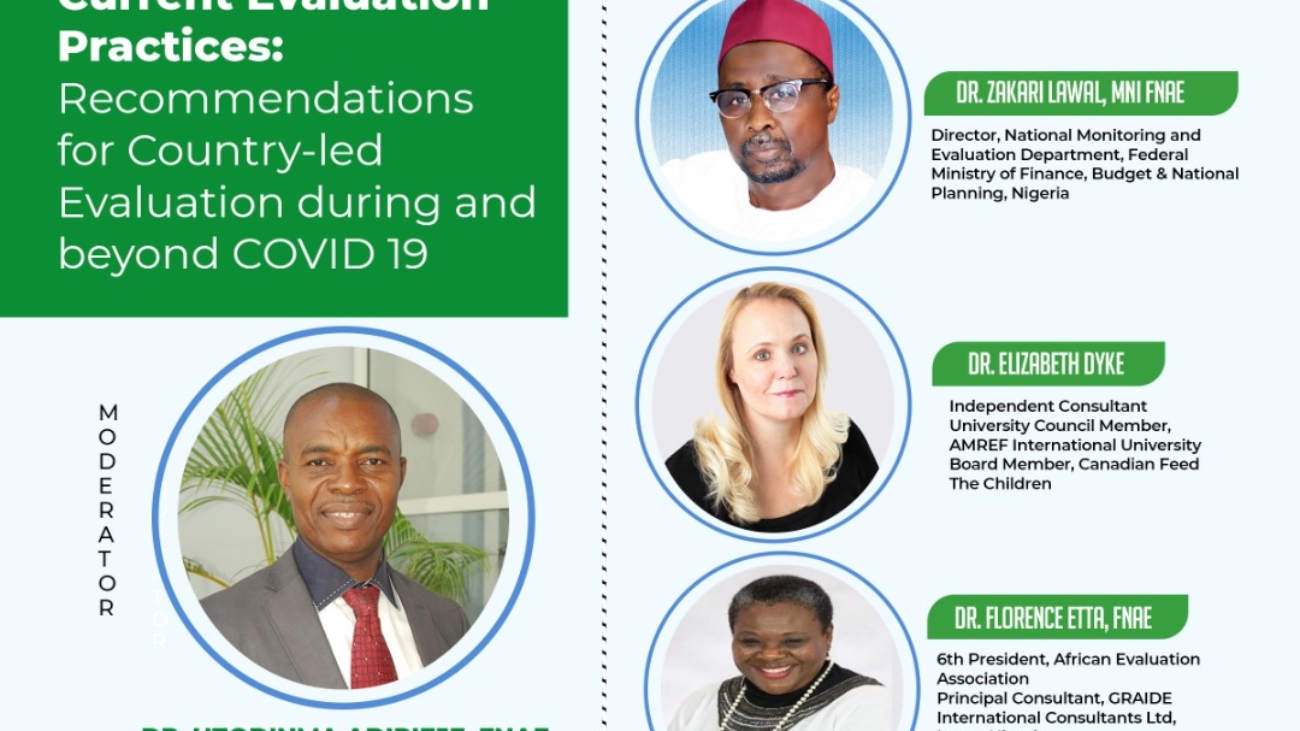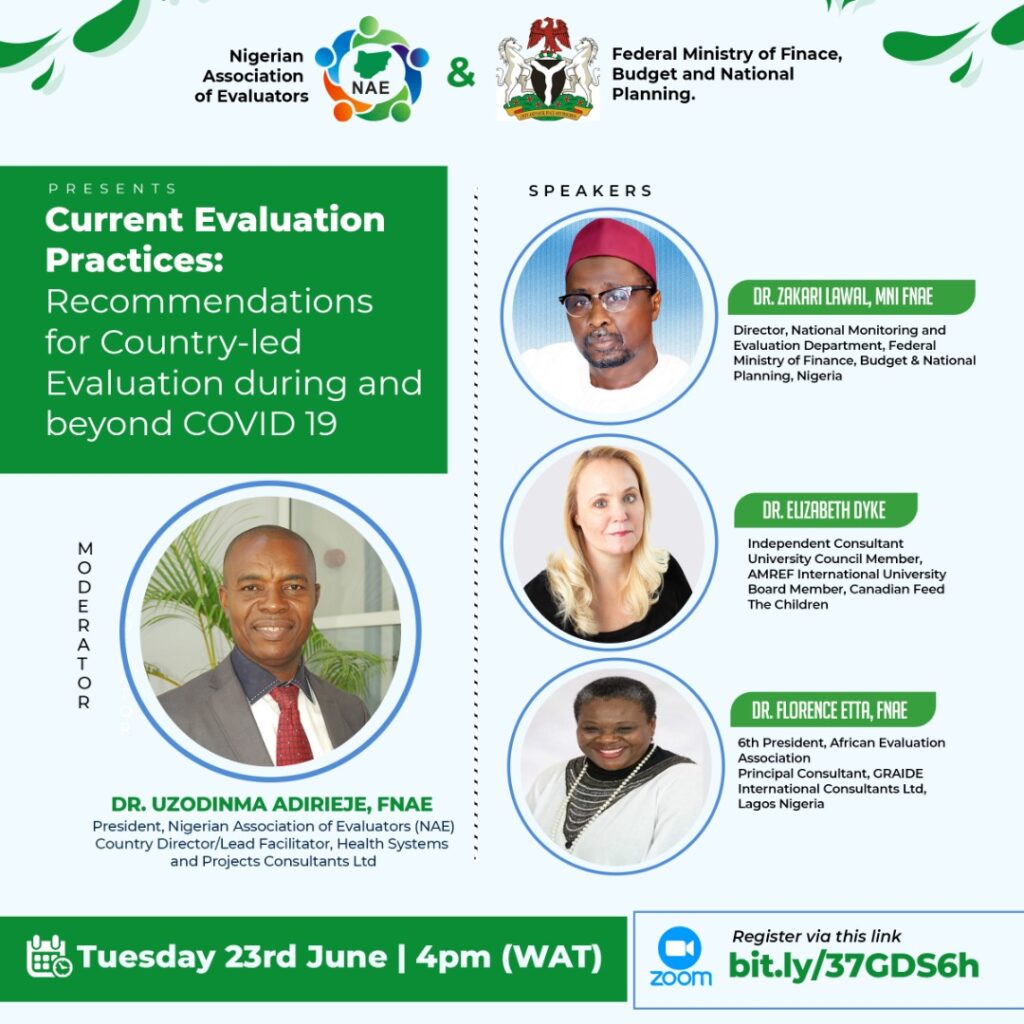The Hon. Minister for Budget and Economic Planning H.E. Senator Abubakar Atiku Bagudu (L , The NAE president Prof. Umar Ibrahim (R) During the Award Presentation
)
NAE to Host National MERL Symposium and Training
The Nigerian Association of Evaluators (NAE) is set to host its highly anticipated National MERL Symposium and Training in Abuja on the 24th and 25th of November 2025. This major national event will bring together evaluation professionals, researchers, policymakers, development partners, and practitioners from across Nigeria and beyond, all united by a shared commitment to strengthening the country’s Monitoring, Evaluation, Research, and Learning (MERL) systems.
The two-day symposium and training will provide a vibrant platform for participants to exchange ideas, share experiences, and explore innovative approaches to evidence generation and utilization. It will feature keynote presentations, interactive plenary sessions, and hands-on training workshops designed to enhance participants’ technical capacity in modern evaluation and learning methodologies. Through these sessions, attendees will gain deeper insights into emerging MERL trends such as data-driven decision making, adaptive management, digital tools for monitoring, and the institutionalization of evaluation practices within the public and private sectors.
In addition to capacity building, the symposium will serve as a hub for networking and collaboration. Participants will have the opportunity to engage with peers, mentors, and thought leaders in the evaluation field, creating new partnerships and sharing best practices that can improve programme design and policy outcomes. The event also underscores NAE’s continued leadership in promoting a culture of accountability, learning, and evidence use across Nigeria’s development landscape.
Overall, the NAE National MERL Symposium and Training promises to be an enriching experience for anyone interested in advancing evaluation practice in Nigeria. It will not only equip participants with the skills and knowledge required to strengthen their MERL systems but also inspire collective action toward achieving sustainable development through evidence-based decision making.
To register please click the following link https://forms.gle/hAvgLGf1UsF4e6EY7
NAE Strategic Pillars set to hit the ground running….As the strategic pillar leads gives update on their various pillars.
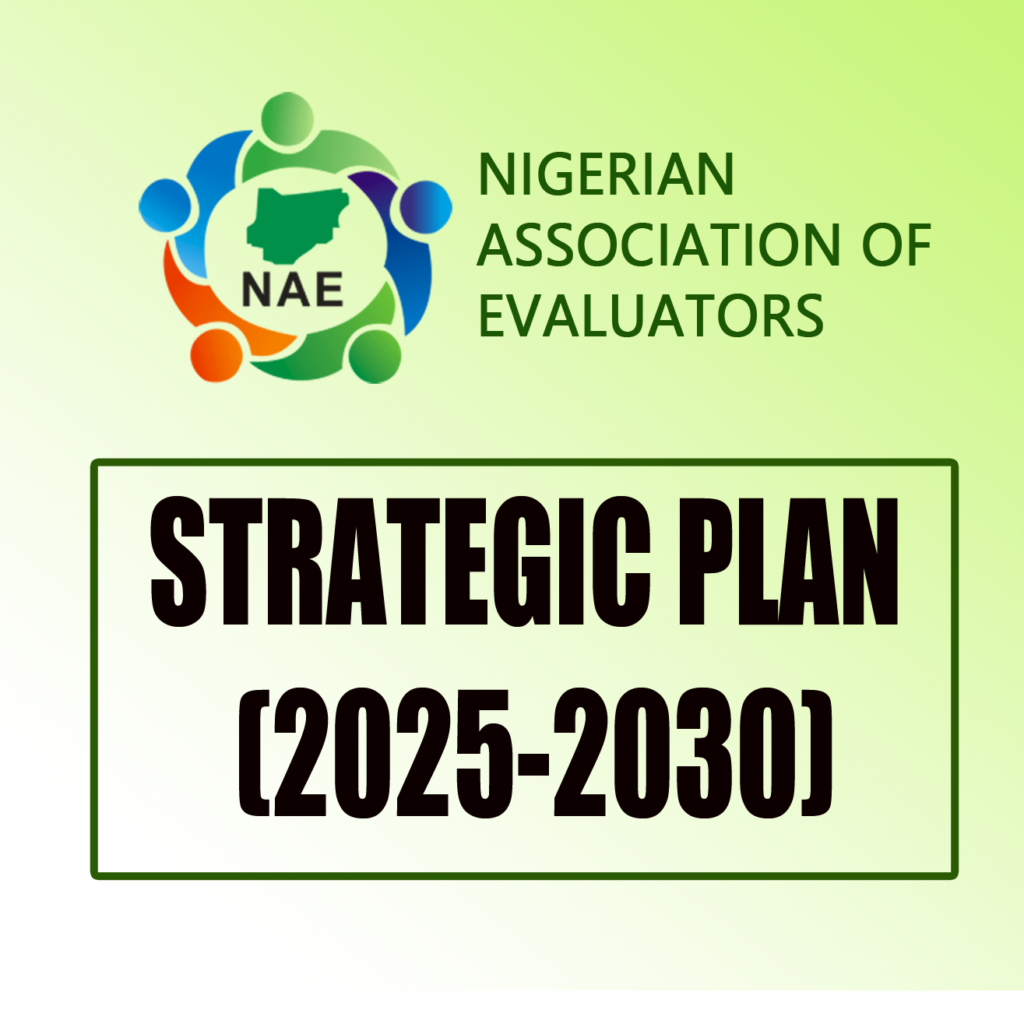
The just concluded meeting of the NAE strategic Plan (2025-2030) which took place yesterday the 22nd of March 2025 has set the ball rolling for all the strategic pillar teams. The meeting had in attendance all members of the NAE NEC, The Chairman of the NAE TWG and members of the NAE who have been working with the TWG.
The meeting was declared open by the NAE Vice President, Ms Yetunde Adegoke who represented the NAE President at the start of the meeting. The floor was open for each pillar leads to present their updates on their various pillars. First to present was the lead for pillar 3, Mrs Ruth Edward Baka, the National Treasurer,, followed by the pillar 2 lead, Ms. Yetunde Adegoke, the National Vice President.
The highlight of the meeting was when Mr Rinji Kwarkas, the National General Secretary took time out to explain the whole idea of the strategic plan just for clarification for people who may not understand the concepts, the developmental stages, the progress and the little changes made from the initial draft of the strategic plan.
Other pillar leads who also presented were the leads for the Pillars 1 and pillar 4 in the persons of Mr Muhammad Nuradeen, the Assistant National General Secretary and Mr Sikiru Taoheed Oladehinde, the National Financial secretary respectively.
There were questions and observations raised by the Chairman of the TWG, Mr Ibikunle Adeola Jegede and other members and they were clarified by the National President and the National General Secretary.
The link to the strategic plan was shared to members present at the meeting and it was also posted on the NAE General whatsapp platform. To view the strategic plan please click the link below
https://drive.google.com/file/d/1d09dVDmEo2bykLUJpw3pHiktzhQbNx-K/view?usp=sharing
The meeting was highly insightful and productive with hopes for a better NAE
Paul Omoruyi
National Publicity Secretary
Celebrating a New Chapter at the NAE – 2024 AGM
The Nigerian Association of Evaluators (NAE) recently held its highly anticipated 2024 Annual General Meeting (AGM) on May 30th. This year’s AGM was a landmark event, marked by the transition to a new governance structure, with the election of the National Executive Committee (NEC) and the Board of Trustees (BoT). The AGM brought together members from across the nation to reflect on the past, acknowledge the efforts of the outgoing caretakers, and usher in a new era of leadership and vision.
Key Highlights
Transition of Leadership: One of the pivotal moments of the AGM was the announcement of the new National Executive Committee (NEC), who were elected a day before. Ms. Lola Visser-Mabogunje, the Chair of the Election Committee, efficiently led the electoral process, ensuring transparency and integrity throughout. The newly elected NEC members are:
- National President: Associate Prof. Ibrahim UMAR
- National Vice President: Ms. Yetunde Oluwakemi ADEGOKE
- National General Secretary: Mr. Rinji KWARKAS
- Assistant General Secretary: Mr. Nuruddeen MUHAMMED
- National Financial Secretary: Mr. Taoheed SIKIRU
- National Public Secretary: Mrs. Ruth Baka EDWARD
This diverse and capable leadership team is poised to drive positive change and innovation within the NAE, ensuring the association’s continued growth and relevance in the field of evaluation. The office of the Treasurer is still vacant as there were no contestants for that position.
Board of Trustees Election: The AGM also saw the re-election of the Board of Trustees, with members reaffirming their confidence in the existing BoT. The newly elected members were unanimously approved for another five-year term. Additionally, Mrs. Olasumbo Yakubu was welcomed as a new member of the BoT, replacing the late Mr. Raymond Akor, whose legacy and contributions were fondly remembered.
Appreciation for the Caretaker Committee:
A heartfelt appreciation was extended to the Caretaker Committee, led by Dr. Sulleiman Adediran, for their significant contributions over the past two years. Their efforts in reforming the association and restructuring its electoral processes were instrumental in the successful conduction of the elections. The Finance Secretary, Mrs. Patience Ogwara, also presented a detailed overview of the association’s financial status, highlighting the positive strides made in financial management and transparency.
Appreciation for the Electoral Committee: The Electoral Committee, chaired by Ms. Lola Visser-Mabogunje, was commended for its dedication and exemplary service throughout the electoral process. Despite challenges, the committee maintained the integrity and fairness of the elections, ensuring a smooth transition of leadership.
Looking Forward
In his closing remarks, the newly elected President, Prof. Ibrahim Umar, expressed gratitude for the successful conclusion of the AGM and extended heartfelt appreciation to all stakeholders for their unwavering support. He emphasized the importance of collaboration and collective action in achieving the NAE’s goals, calling upon members to advance the association’s objectives and promote excellence in evaluation practices.
The Chairman of the BoT, Dr. Shamsuddeen Usman, also commended the incoming executives for their willingness to assume leadership roles. He highlighted the importance of continuity, stability, and strategic vision in guiding the association forward.
With a sense of optimism and renewed purpose, the AGM concluded, marking the beginning of a new chapter in the Nigerian Association of Evaluators’ journey towards greater impact and success. The date for the next AGM will be announced in due course.
Stay tuned for more updates from the NAE as we embark on this exciting new phase of growth and development.
An Address by Dr. Shamsuddeen Usman, OFR, CON, at the Abuja LSE Talks British High Commissioner’s Residence, Maitama, Abuja
An Address by Dr. Shamsuddeen Usman, OFR, CON, at the Abuja LSE Talks
British High Commissioner’s Residence, Maitama, Abuja.
To Serve with Knowledge, Integrity and Humility
1. Introduction
1.1 If your alma mater has recorded the following achievements:
● it is 126 years old and was founded by five members of the Fabian Society,
including George Bernard Shaw
● has over 155,000 Alumni that are change makers, influencers and leaders
that are making profound impact on their societies
● has Alumni from virtually all regions of the globe who are active in virtually
all sectors of the economy and society.
● has Alumni that include 55 past and current Heads of State (including J. F.
Kennedy) and 18 Nobel Prize winners
● is, out of all European universities, the one that has produced most
billionaires, including George Soros
● has produced several Central Bank Governors, including Janet Yellen,
Stanley Fischer, Mervin King and Paul Volker
● as once reported by the U.K Guardian, is a school whose political clout is
“closely wired into parliament, Whitehall and the Bank of England”
● that, coming closer home, is one that has produced:
○ 2 Kenyan Presidents, including Jomo Kenyatta
○ 3 Ghanian Presidents, including Kwame Nkurumah
○ Notable Nigerians, including statesmen and public figures like
Obafemi Awolowo, Augustus Akinloye, Ibrahim Gambari and our current Vice President Yemi Osinbajo; Bankers like Subomi Balogun,
Pascal Dozie, Atedo Peterside, Aig Imoukhuede, Bolaji Balogun and Ubadigbo Okonkwo, and other notable alumni, such as Bayo Kuku, Tunde Folawiyo, Salamatu Sulaiman, Kingsley Moghalu, Garba Donli, etc.
The DAC Criteria Guidance 2021
The OECD DAC just published their long-awaited guidance on the appropriate application of the (in)famous DAC evaluation criteria which were updated and adopted on December 2019. Everyone who uses the criteria should study this useful guidance in depth, as this thoughtful post by Michaela Raab also emphasises. Megan and those who supported her deserve credit for what they have done. The guidance will be critical in helping to avoid the pitfalls in using the criteria, which many said were the main problem with the original set.
The guidance is an important step. The updated criteria have even more easy-to-ignore demands stacked under each one. For more about the debates around their merit and usefulness, see my critical 2018 blog post series on the DAC criteria. The posts solicited many thoughtful comments from around the world. But despite this helpful guidance I am still not a fan. There is now more recognition of the need to demand evaluations informed by a complex adaptive systems view of the world, but the criteria are still too safe and comfortable amidst a world in turmoil and in dire need of systems change and transformative action.
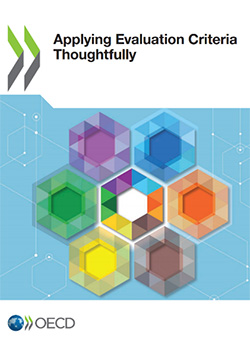
Selecting and defining evaluation criteria are a serious professional matter. Together with evaluation questions, criteria lay out the contours for an assessment. The worldview, assumptions and values that underlie the criteria we use shape the findings, judgments, recommendations and lessons that flow from each assessment.
This is of particular importance in the case of these DAC criteria, as they are set to remain enormously powerful, especially in the Global South, despite expressions of modesty from persons involved in their design and promotion. This is why they deserve in-depth, ongoing scrutiny by well-informed, thoughtful persons who have NOT been steeped in outdated narratives about how the world – and development – are supposed to work.
For important additional or alternative perspectives, see the approaches of ALNAP, the Network of Southern Think-tanks Africa (NeST Africa) with its contributions to South-South cooperation with its very different underlying principles and hence implied criteria, and Michael Quinn Patton in this article, which reflects my view that the criteria are fine for ‘business as usual summative and accountability evaluations’, but remain inadequate for addressing systems change and transformation from local to global level.
Yet that is what we need to do in the aftermath of the COVID-19 pandemic and the looming crises resulting from the Anthropocene and extreme capitalism. The DAC criteria still do not encourage us well enough to play a more dynamic and thoughtful role in facing the world’s most important and most urgent challenges.
So, it is essential that commissioners do not fall into new comfort zones, but look afresh at each evaluation to see which criteria out of a broad range will add enough value and be bold enough to get to the essence of what we need to understand and assess to ensure that evaluation can make a difference beyond some incremental inputs. Otherwise we will continue to fiddle at the edges of “development”, whether in the Global South, or in the Global North where all well-off societies need to rethink their relationship with the whole community of life on which we all depend.
Agba Receives Draft National Policy Document On Monitoring And Evaluation
Minister of State, Budget and National Planning, Prince Clem Ikanade Agba, has received a draft Policy document on National Monitoring and Evaluation (M & E) as a tool to measure results and link evaluation evidence to policy, planning and budgeting processes to promote public accountability and learning for improved performance.
The document which is the first draft policy on M&E in Nigeria was developed by a tripartite team comprising Federal Ministry of Finance, Budget and National Planning, UNICEF and a consultant, Ian C. Davies.
Receiving the document on Tuesday, in Abuja, the Minister commended the team for its effort, adding that he would look at, make necessary input into the document, and present it to the National Economic Council (NEC), before its final submission to the Federal Executive Council (FEC), for approval.
Agba also stated that the Medium-Term National Development Plans (MTNDPs 2021-2025 & 2026-2030) and the Nigeria Agenda 2050 currently being developed, extensively encouraged the institutionalization of M& E in Nigeria’s developmental process because “what is not monitored is not done.”
He also said that the draft policy document was apt as it would guide the implementation of the plans and the “Eye-Mark web application” being developed to assist government in tracking its capital project development efforts across the country.
The application, according to Agba, would serve as a platform where citizens could upload pictures/records on the progress of work regarding various projects in their jurisdictions.
This, he said, would ensure that integrity and accountability were maintained in handling government business while building citizenship trust in government’s policies and programmes.
Speaking earlier, the President, Nigerian Association of Evaluators, Dr Uzodinma Aderieje, commended the Minister for supporting and acknowledging the place of evaluation in development process, stressing that “development process is nothing without evaluation.”
Also, the Evaluation Manager, UNICEF-Nigeria, Dr Robert Ndamobissi, pointed out that the document would help in establishing a national accountability framework which would enable the country demonstrate its political will to play its role as the giant of Africa.
Ndamobissi further reiterated UNICEF’s resolve to develop large partnership with governments round the world, towards achieving good governance and accountability.
“This framework is hoped, would make Nigeria one of the strongest developing economies in the world,” he further added.
Victoria Agba-Attah,
D/Information,
BNP.
Rethinking Evaluation Competencies at a Time of Uncertainty
Webinar on Rethinking Evaluation Competencies at a Time of Uncertainty
Organized by Sri Lanka Evaluation Association & Nigerian Association of Evaluators in collaboration with Asia Pacific Evaluation Association, Evaluation Community of India & Center for Evaluation, University of Sri Jayewardenepura
Date: Friday, 28th August 2020 at 6.30 pm IST, 9.00 am EST
Registration: https://bit.ly/SLEVAAUG
Speakers:
Michele Tarsila
International Evaluation Specialist
Silvia Salinas Mulder
President, International Organization for Cooperation in Evaluation (IOCE)
Opening Remarks:
Uzodinma Adirieje
President, Nigerian Association of Evaluators
Agenda:
Welcome and introduction
Moderator
Opening remarks – 3 minutes (no presentation)
Presentation – 30 minutes
Q&A with the audience – 25 minutes
Moderator
Closing Remarks (SLEvA)– 3 minutes (no presentation)
2020 Annual General Meeting
This is to invite all members of the Nigerian Association of Evaluators to the 2020 Annual General Meeting.
Date: Tuesday 30th June 2020
Time: 11:00am
Venue: ZOOM
Click on the link to register for the Annual General Meeting: http://bit.ly/2B5zsdh
Keep it a date with us.
Signed
Mrs Adeola Awogbemi
National Publicity Secretary.
